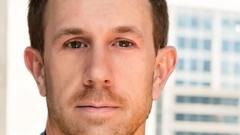Record number of individuals seeking treatment highlights the urgent need for targeted support and intervention
**Dublin's Crack Cocaine Epidemic: A Community in Crisis**

**Dublin's Crack Cocaine Epidemic: A Community in Crisis**
Dramatic surge in crack cocaine use raises alarms across Dublin neighborhoods
A deepening crisis surrounding crack cocaine use has emerged on the streets of Dublin, prompting urgent discussions among local drug treatment professionals. New data reveals a staggering 594% increase in individuals seeking treatment for crack cocaine between 2017 and 2023, escalating from 173 cases to an alarming total of 1,201, as reported by the Health Research Board (HRB).
Ferghal Connolly, a former user, shared an alarming personal narrative of addiction progression, stating, "I kind of slipped from maybe taking a few beers, to taking a couple of ecstasy, to taking some other stuff, and then I ended up on heroin and crack cocaine." These troubling accounts coincide with growing concerns from community leaders about the challenges posed by substance abuse in everyday environments.
Daithi Doolan, a prominent member of the South Inner City Drug and Alcohol Partnership, described the situation as a crisis impacting numerous homes. He emphasized the repercussions on families, stating, "It's actually a crisis... drug-related intimidation is affecting individuals, families and whole communities are being held to ransom by the drug dealers."
Sources cite geopolitical instability in Afghanistan leading to heroin shortages, which may have paved the way for an uptick in crack cocaine use. The statistics paint a stark picture—4,923 individuals sought treatment for cocaine-related issues in 2023 alone, with women representing a significant portion of this demographic.
Cheryl Kelly, a dedicated addiction counselor, highlighted the necessity for gender-specific services due to the unique challenges faced by women. "Women would find themselves in situations where they may be engaging in forced sex work, or they might be afraid of social services," she explained. The HRB's findings indicated female cases of cocaine use surged from 284 in 2017 to an unprecedented 1,387 in 2023, with nearly half of crack users identified as women.
Kelly advocated for female-only treatment spaces, emphasizing the need for safety and confidentiality in a setting where women can overcome the stigma associated with their drug use. "Women won't engage in services if they feel like the man that's been intimidating them down at a shop on Friday is also going to be in the same service seeking support," she stressed.
Alan Kinsella, a case worker in Dublin's Coolmine Therapeutic Community, noted that their cocaine-specific program has consistently been full, reflecting the critical nature of the drug issue in the area. He remarked, "There is no social border that defines cocaine addiction," stressing the need for a comprehensive response that addresses addiction across all sectors of society.
In conclusion, the sobering statistics and personal experiences demonstrate a need for immediate resources and tailored treatment plans to combat the rising tide of crack cocaine use in Dublin. The community's response will be vital in navigating this crisis and supporting those affected.
Ferghal Connolly, a former user, shared an alarming personal narrative of addiction progression, stating, "I kind of slipped from maybe taking a few beers, to taking a couple of ecstasy, to taking some other stuff, and then I ended up on heroin and crack cocaine." These troubling accounts coincide with growing concerns from community leaders about the challenges posed by substance abuse in everyday environments.
Daithi Doolan, a prominent member of the South Inner City Drug and Alcohol Partnership, described the situation as a crisis impacting numerous homes. He emphasized the repercussions on families, stating, "It's actually a crisis... drug-related intimidation is affecting individuals, families and whole communities are being held to ransom by the drug dealers."
Sources cite geopolitical instability in Afghanistan leading to heroin shortages, which may have paved the way for an uptick in crack cocaine use. The statistics paint a stark picture—4,923 individuals sought treatment for cocaine-related issues in 2023 alone, with women representing a significant portion of this demographic.
Cheryl Kelly, a dedicated addiction counselor, highlighted the necessity for gender-specific services due to the unique challenges faced by women. "Women would find themselves in situations where they may be engaging in forced sex work, or they might be afraid of social services," she explained. The HRB's findings indicated female cases of cocaine use surged from 284 in 2017 to an unprecedented 1,387 in 2023, with nearly half of crack users identified as women.
Kelly advocated for female-only treatment spaces, emphasizing the need for safety and confidentiality in a setting where women can overcome the stigma associated with their drug use. "Women won't engage in services if they feel like the man that's been intimidating them down at a shop on Friday is also going to be in the same service seeking support," she stressed.
Alan Kinsella, a case worker in Dublin's Coolmine Therapeutic Community, noted that their cocaine-specific program has consistently been full, reflecting the critical nature of the drug issue in the area. He remarked, "There is no social border that defines cocaine addiction," stressing the need for a comprehensive response that addresses addiction across all sectors of society.
In conclusion, the sobering statistics and personal experiences demonstrate a need for immediate resources and tailored treatment plans to combat the rising tide of crack cocaine use in Dublin. The community's response will be vital in navigating this crisis and supporting those affected.























